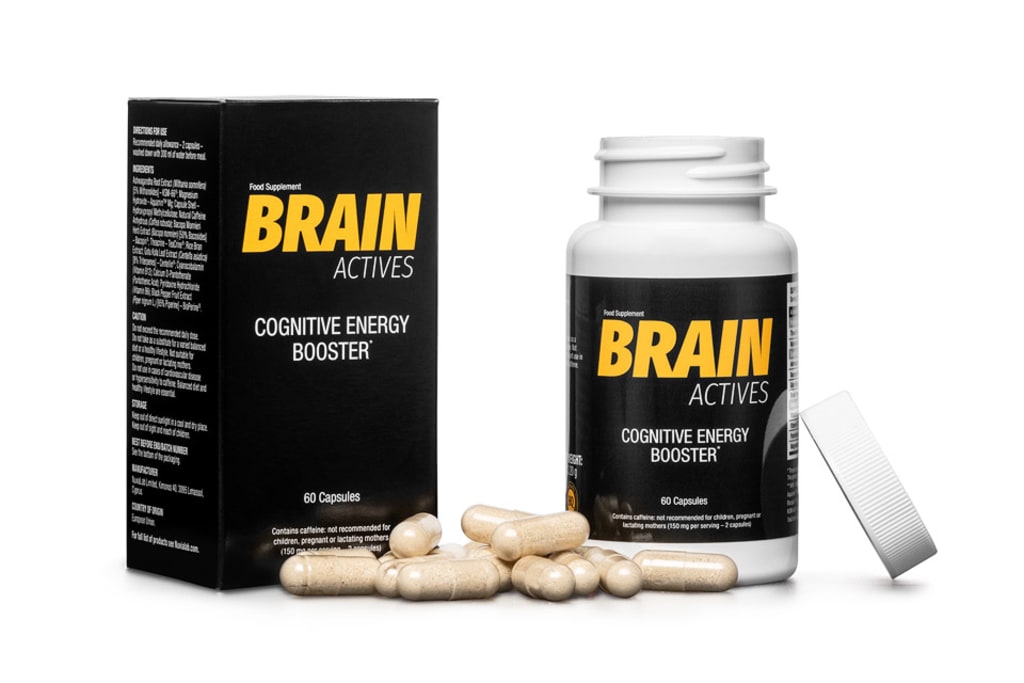Improving Brain Health with Diet: Essential Nutrients for Cognitive Longevity
The Role of Diet in Cognitive Function

Maintaining our cognitive capacity becomes much more crucial as we age. Recent studies in Nutritional Cognitive Neuroscience show that elderly persons' brain shape, function, and cognition may be much changed by the foods they eat.
Published in Nature Aging, this innovative work reveals a group of nutrients that support "healthy brain aging."
Here we explore these brain-boosting nutrients, their functions, and how include them into our diets could assist to maintain cognitive health.
The Role of Diet in Cognitive Function
CLICK HERE TO LEARN HOW TO BOOST YOUR BRAIN MEMORY FAST
Common worries as we become older are cognitive deterioration. This study, however, implies that our food might provide the means to either stop or slow down this degradation.
Researchers found important nutrients that link with greater brain sizes, higher white matter integrity, more efficient brain network architecture, and better performance on cognitive tests by looking at the diets, cognitive abilities, and brain scans of 100 older persons.
Key Components for Brain Function
Monounsaturated and polyunsaturated fatty acids
Found in vegetables, nuts, and seafood as well as vegetable oils, these fatty acids are essential for preserving the structural integrity of brain cells and enabling neuron transmission.
They also help greatly in reducing inflammation, which is connected to aging-related cognitive decline and neurological illnesses including Alzheimer's.
Vitamin E
Packed in nuts, seeds, and leafy greens, vitamin E is a potent antioxidant that shields brain cells from oxidative damage. As one ages, this kind of cellular damage accumulates; antioxidants such as vitamin E assist to offset its effects, hence maintaining cognitive ability.
Choline
Found in eggs, beef, and cruciferous vegetables, choline is basic for generating acetylcholine, a neurotransmitter vital for memory.
It also preserves the structural integrity of brain cell membranes, therefore supporting general brain function.
Carotenoids: Zeaxanthin and Lutein
Mostly present in leafy green vegetables such as kale and spinach, these antioxidants build up in the brain to guard against free radical damage of cells.
Higher levels of lutein and zeaxanthin have been linked in older individuals to improved memory, processing speed, and executive function.
The Mediterranean Diet: A Recipe for Cognitive Function
The nutritional profile found in the research is quite similar to the Mediterranean diet, which is well-known for stressing foods high in useful nutrients. This diet is a useful and efficient way to feed the brain as it consists in lots of fish, nuts, seeds, fruits, vegetables, and good fats.
Research Results and Consequences
Based on their brain health, researchers found that individuals could be divided into two groups: those with more marked brain degradation (the "Accelerated Aging" group) and those with age-appropriate brain alterations (the "Delayed Aging" group).
Along with improved scores on cognitive tests, the Delayed Aging group had greater amounts of important nutrients.
Remarkably, participants' "brain age" computed by machine learning techniques showed that individuals in the Delayed Aging group had brains that seemed younger than their chronological age.
This result emphasizes the possibility of diet to preserve, maybe even reverse, features of brain aging.
Ideas for a Brain-Healthy Diet
Although this study offers a solid basis, it is not a prescription exactly. The principal writers stress the need of getting these nutrients from entire meals instead of pills. The favorable benefits of whole meals most certainly depend on the natural interactions among their components.
Useful Diet Advice
Rich in omega-3 fatty acids, seafood including salmon and mackerel improve brain function.
Vitamin E is found rather well in almonds, walnuts, and sunflower seeds.
Among the leafy greens, spinach, kale, and other ones offer vital carotenoids and vitamins.
Good sources of choline, which are vital for the synthesis of neurotransmitters, eggs and meat should be included.
Future Study Areas
This research is a fascinating advance in knowledge of the function of diet in brain development.
Its cross-sectional architecture, however, makes causation difficult to prove absolutely.
More study, especially randomized controlled trials, will assist to clarify ideal "neuro-nutrition."
final Thought
Changing to a diet high in these neuroprotective minerals can assist senior citizens maintain their cognitive capacity.
Our brains may be nourished and perhaps kept sharp, our memories vivid, and our cognitive abilities intact as we age by choosing wise diets.
In essence, our diets are really important for preserving brain function as we become older. Emphasizing a nutrient-dense diet—especially one consistent with the Mediterranean diet—we can improve our cognitive lifetime and general well-being.
About the Creator
Enjoyed the story? Support the Creator.
Subscribe for free to receive all their stories in your feed. You could also pledge your support or give them a one-off tip, letting them know you appreciate their work.





Comments
There are no comments for this story
Be the first to respond and start the conversation.